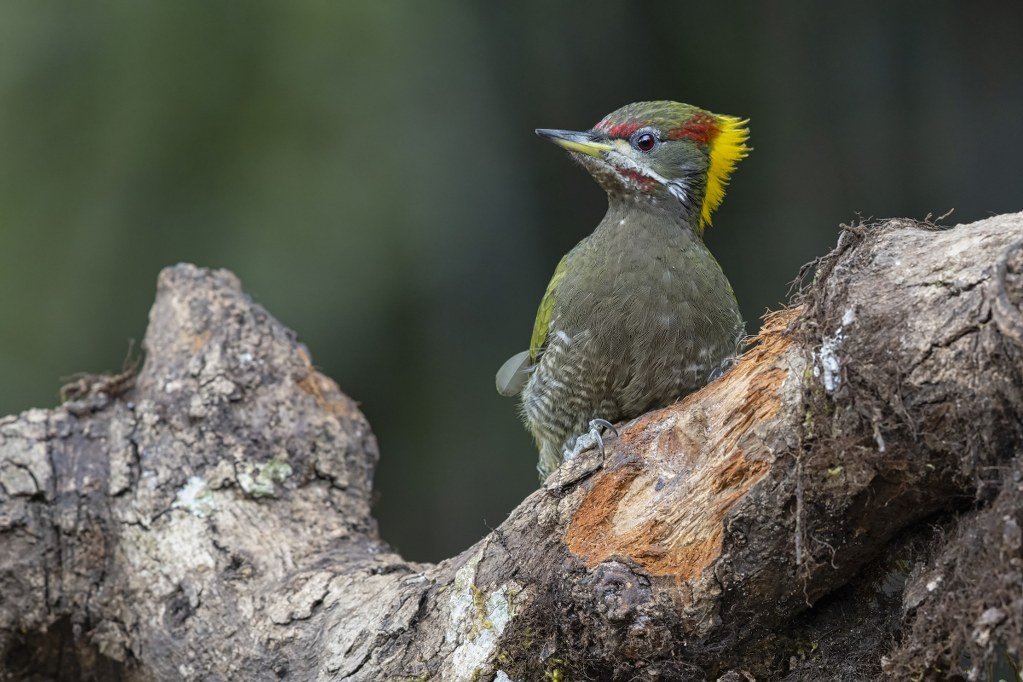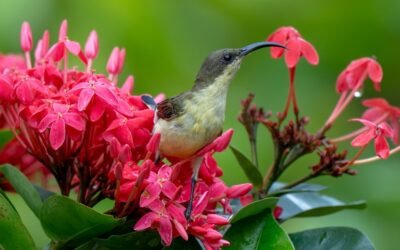Congratulations to everyone who contributed to Hareli Bird Count 2025!
As Chhattisgarh’s first-ever bird documentation effort, it was truly inspiring to see citizen bird enthusiasts participate from all 33 districts of the state. Over four days, 140 eBirders came together and recorded an impressive 203 species through 816 checklists—a remarkable milestone for the region!
The idea of such an event was to get people interested in birds, create awareness and celebrate the rich bird diversity of the state. Events such as these when conducted every year can also help in generating a baseline data to compare the year after year trends of our birds.
Coming soon: Names of all the eBirders who uploaded checklists during Hareli Bird Count 2025
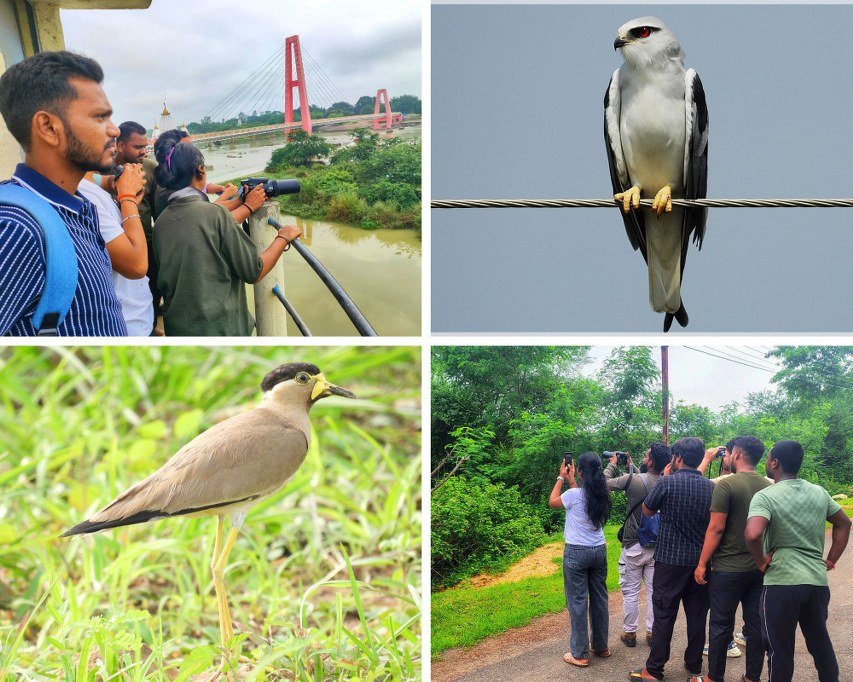
Photos by: Abhishek Maitry, Anand Karambe, and Khemchand Jaiswal
One of the most uplifting aspects of the Hareli Bird Count 2025 was the way enthusiastic birdwatchers opened the world of birds to so many others. Across villages, schoolyards, and forest edges, experienced birders came together with students, teachers, elders, homemakers, and first-time bird enthusiasts—bridging generations, genders, and backgrounds. With a pair of binoculars or just a simple bird guide, they sparked curiosity and joy, turning a quiet moment into an exciting discovery of a drongo’s call or a parakeet’s flash of green. For many participants, especially students, this was their very first time noticing the rich birdlife around them—and the smiles, questions, and eager pointing fingers said it all. The count wasn’t just about species or numbers; it became a celebration of shared wonder and the beginning of many birding journeys.
The collages below offer a glimpse into these heartening moments—students out in the field with notebooks, classroom sessions buzzing with excitement, and groups pausing mid-walk to watch a bird together. They reflect the spirit of Hareli: learning, joy, and community, all stitched together through birds.
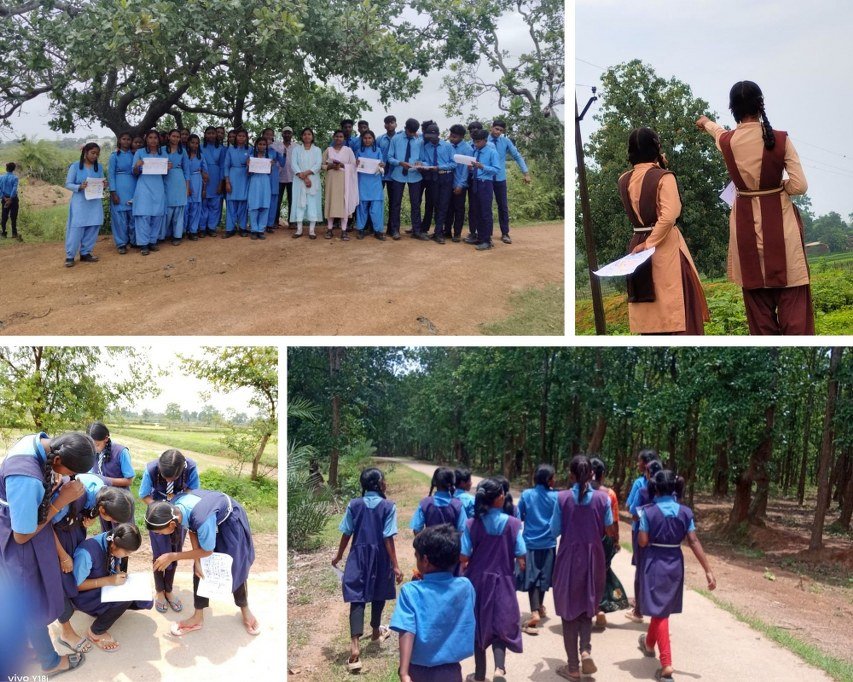
Photo by: Kiran Koushik and Shravan Verma
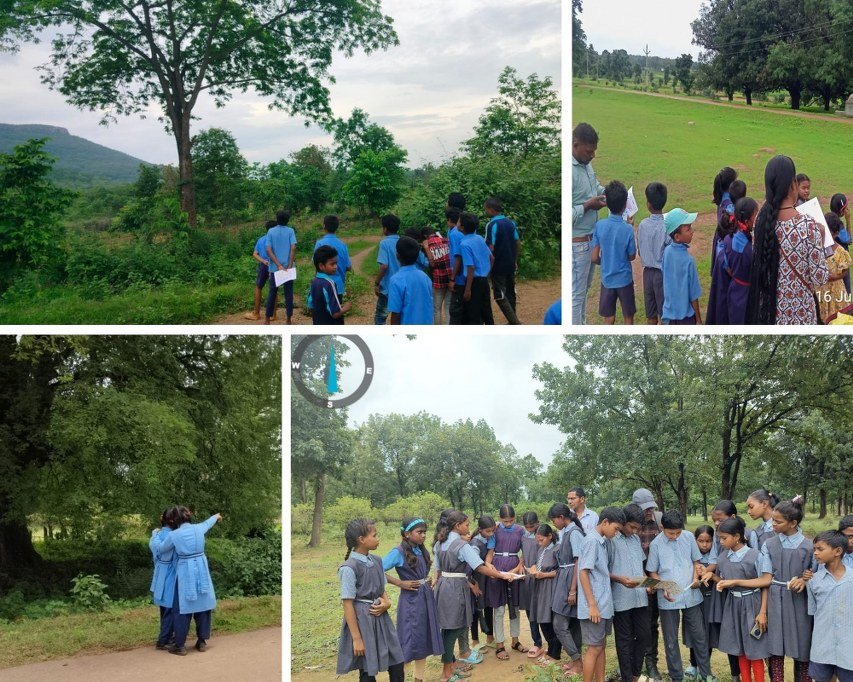
Photo by: Shravan Verma
Between 13 to 16 July 2025, participants documented recording an impressive 201 bird species! Click on this link to see all the species reported during the four days of the count. Among the species reported were the following classed as High Priority in the SoIB 2023 report:
Egyptian Vulture
Indian Courser
Little Ringed Plover
Little Tern
Oriental Skylark
Osprey
Rufous-tailed Lark
Thick-billed Flowerpecker
Yellow-crowned Woodpecker
Notable Species Highlights
Several remarkable and unusual sightings were recorded during the count. These included the Lesser Yellownape and Velvet-fronted Nuthatch at Bhoramdeo Wildlife Sanctuary, the Malabar Whistling Thrush and nesting Black Baza at Kanger Valley National Park, and a lone pair of Sarus Cranes in the Surguja Division. A flock of 12 Malabar Pied-Hornbills was also observed at Udanti-Sitanadi Wildlife Sanctuary—a particularly significant sighting for the region.
Most Frequently Reported Species:
The table below shows the 10 species that appeared most often across all checklists submitted during the four days of the Hareli Bird Count. The percentage indicates the proportion of total checklists in which each species was reported.
| Common Name | % of Checklists |
|---|---|
| Red-vented Bulbul | 44% |
| Black Drongo | 36% |
| Common Tailorbird | 33% |
| Greater Coucal | 33% |
| Laughing Dove | 32% |
| Common Myna | 29% |
| Indian Robin | 29% |
| Purple Sunbird | 29% |
| White-throated Kingfisher | 28% |
| Indian Pond-Heron | 27% |
Participation Across Districts
A total of 140 eBirders from almost every district in Chhattisgarh contributed to the Hareli Bird Count, reflecting growing interest in birdwatching across the state. The table below shows the number of eBirders who participated from each district.
| District | # eBirders |
|---|---|
| Raipur | 37 |
| Baloda Bazar | 21 |
| Dhamtari | 16 |
| Bastar | 12 |
| Bilaspur | 10 |
| Durg | 10 |
| Surguja | 10 |
| Bemetara | 9 |
| Mahasamund | 9 |
| Rajnandgaon | 9 |
| Gariaband | 8 |
| Korea | 7 |
| Bijapur | 5 |
| Kanker | 5 |
| Kabirdham | 5 |
| Jashpur | 4 |
| Balrampur | 3 |
| Dantewada | 3 |
| Korba | 3 |
| Mungeli | 3 |
| Surajpur | 3 |
| Balod | 2 |
| Narayanpur | 2 |
| Raigarh | 2 |
| Janjgir-Champa | 1 |
| Kondagaon | 1 |
| Sukma | 1 |
Note: The numbers shared above are based on data available and analysed as of 21 July 2025. Final figures may vary slightly as more checklists are uploaded or reviewed. While eBird currently lists 27 districts, Chhattisgarh officially recognizes 33.
During the Hareli Bird Count 2025, all major Protected Areas—including Tiger Reserves, National Parks, and Wildlife Sanctuaries—were covered for the first time across Chhattisgarh. These included:
1. Barnawapara WLS
2. Kanger Valley National Park
3. Indravati Tiger Reserve
4. Udanti Sitanadi WLS
5. Gomarda WLS
6. Achanakmar Tiger Reserve
7. Guru Ghasidas Tiger Reserve
8. Semarsot WLS
9. Bhoramdeo WLS
Congratulations to all the participants, coordinators and personnels from the Forest and Climate Change Department, Chhattisgarh and Birds and Wildlife of Chhattisgarh for this remarkable achievement! Special shout out to all the partners who played a vital role in the successful execution of the Hareli Bird Count 2025. Their support, expertise, and dedication made this a truly collaborative and enriching effort. Together, we’ve taken another meaningful step toward strengthening bird monitoring and conservation in Chhattisgarh.
A special mention to Foundation for Ecological Security (FES), Chhattisgarh Wildlife Society, Chhattisgarh Vigyan Sabha, Biodiversity Conservation Society, and Wildlife Society Kanker for their invaluable contributions on the ground. We also sincerely appreciate our hospitality partners—Tree of Life Machan Barnawapara and the Celebration Group of Hotels—for their generous support and warm hospitality.
Also, sincere appreciation to all media houses who thoughtfully covered this event and helped in spreading the word through their platforms.
Hareli Bird Count will return next year, with the hope of having more influx of birders and enthusiasts across Chhattisgarh!
Header Image: Lesser Yellownape Picus chlorolophus © Marco Valentini / Macaulay Library

